
Arnd Roth
@arndroth.bsky.social
Computational neuroscience and connectomics
Reposted by Arnd Roth
Thrilled that our paper is out today in Nature!
www.nature.com/articles/s4...
www.nature.com/articles/s4...

Sensory expectations shape neural population dynamics in motor circuits
Nature - Experiments with human volunteers and macaques show that expectations produced by probabilistic cueing of future sensory inputs shape motor circuit dynamics in order to increase the...
www.nature.com
October 29, 2025 at 4:11 PM
Thrilled that our paper is out today in Nature!
www.nature.com/articles/s4...
www.nature.com/articles/s4...
Reposted by Arnd Roth
I don't often cite The Spectator, but this is quite good.

October 21, 2025 at 3:29 PM
I don't often cite The Spectator, but this is quite good.
Reposted by Arnd Roth
Episode #33 in #TheoreticalNeurosciencePodcast: On computational neurotechnology for the clinic – with Anthony Burkitt, Nada Yousif and Esra Neufeld
theoreticalneuroscience.no/thn33
I hosted a panel debate on the topic at CNS2025 in Florence in July. @cnsorg.bsky.social
theoreticalneuroscience.no/thn33
I hosted a panel debate on the topic at CNS2025 in Florence in July. @cnsorg.bsky.social

October 11, 2025 at 7:56 AM
Episode #33 in #TheoreticalNeurosciencePodcast: On computational neurotechnology for the clinic – with Anthony Burkitt, Nada Yousif and Esra Neufeld
theoreticalneuroscience.no/thn33
I hosted a panel debate on the topic at CNS2025 in Florence in July. @cnsorg.bsky.social
theoreticalneuroscience.no/thn33
I hosted a panel debate on the topic at CNS2025 in Florence in July. @cnsorg.bsky.social
Using a new genetically-encoded voltage indicator in an all-optical approach to measure synaptic plasticity in awake behaving mice. Great work by @jacquescarolan.bsky.social and colleagues. Check out www.nature.com/articles/s41...

All-optical voltage interrogation for probing synaptic plasticity in vivo - Nature Communications
Reliable measuring the voltage dynamics of individual neurons in the intact brain is significantly challenging. Here authors developed an all-optical method combining two-photon voltage imaging and optogenetics to measure and induce synaptic plasticity in vivo, revealing LTP of inhibition in cerebellar circuits and providing a blueprint to link synaptic changes to learning.
www.nature.com
October 4, 2025 at 2:15 AM
Using a new genetically-encoded voltage indicator in an all-optical approach to measure synaptic plasticity in awake behaving mice. Great work by @jacquescarolan.bsky.social and colleagues. Check out www.nature.com/articles/s41...
Check this out if you're interested in causal neuroscience and/or brain-machine interfaces www.cell.com/cell-reports...

A real-time all-optical interface for dynamic perturbation of neural activity during behavior
Zhang et al. develop a system that reads activity from individual neurons in real
time and uses holographic light patterns to control specific neurons in mice, enabling
automated, all-optical experime...
www.cell.com
September 22, 2025 at 11:15 PM
Check this out if you're interested in causal neuroscience and/or brain-machine interfaces www.cell.com/cell-reports...
Reposted by Arnd Roth
Episode #32 in #TheoreticalNeurosciencePodcast: On IIT and adversarial testing of consciousness theories – with Christof Koch
theoreticalneuroscience.no/thn32
Christof, a developer of the IIT theory for consciousness, explains IIT and recent testing against the GNWT theory.
theoreticalneuroscience.no/thn32
Christof, a developer of the IIT theory for consciousness, explains IIT and recent testing against the GNWT theory.

September 13, 2025 at 7:04 AM
Episode #32 in #TheoreticalNeurosciencePodcast: On IIT and adversarial testing of consciousness theories – with Christof Koch
theoreticalneuroscience.no/thn32
Christof, a developer of the IIT theory for consciousness, explains IIT and recent testing against the GNWT theory.
theoreticalneuroscience.no/thn32
Christof, a developer of the IIT theory for consciousness, explains IIT and recent testing against the GNWT theory.
Reposted by Arnd Roth
Reposted by Arnd Roth
Want to collaborate with the International Brain Laboratory on your own project? We have funding to work with groups anywhere in the world to do new large-scale projects and we are looking for new partners! Learn more and apply: www.internationalbrainlab.com/ibl-core-apply

September 11, 2025 at 12:27 PM
Want to collaborate with the International Brain Laboratory on your own project? We have funding to work with groups anywhere in the world to do new large-scale projects and we are looking for new partners! Learn more and apply: www.internationalbrainlab.com/ibl-core-apply
X Latin American School on Computational Neuroscience – LASCON 2026
University of São Paulo, Brazil
January 5-30, 2026
Application Deadline: October 4, 2025
sisne.org/en/lascon-x/
University of São Paulo, Brazil
January 5-30, 2026
Application Deadline: October 4, 2025
sisne.org/en/lascon-x/
LASCON X – SisNe
sisne.org
September 13, 2025 at 12:48 AM
X Latin American School on Computational Neuroscience – LASCON 2026
University of São Paulo, Brazil
January 5-30, 2026
Application Deadline: October 4, 2025
sisne.org/en/lascon-x/
University of São Paulo, Brazil
January 5-30, 2026
Application Deadline: October 4, 2025
sisne.org/en/lascon-x/
Reposted by Arnd Roth
Our 2nd Array Tomography Workshop will be in November in Buenos Aires and there is still time to apply! Five days of hands-on learning, discussions and talks + gorgeous electron microscopy and immunofluorescence. Focus on simple and affordable workflows.
www.arraytomography.org/workshop-202...
www.arraytomography.org/workshop-202...
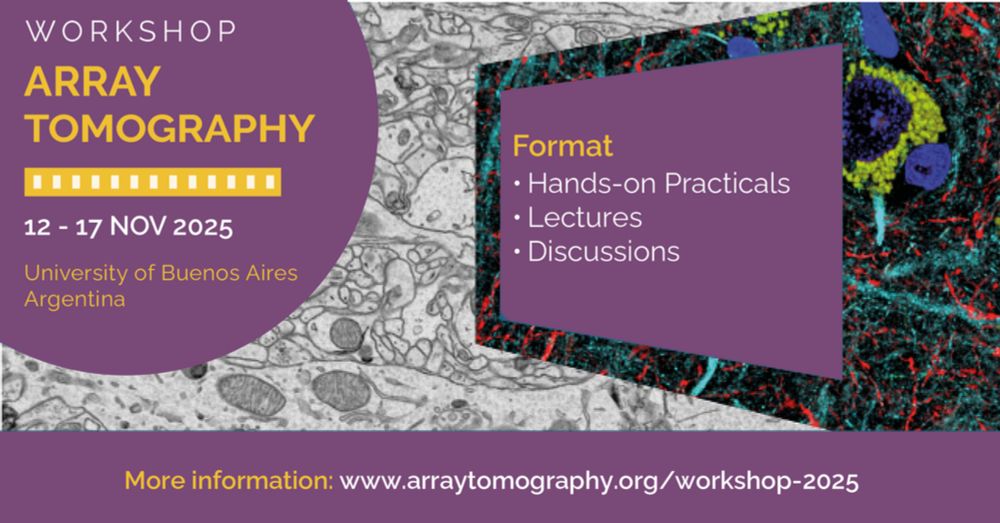
Workshop 2025
About the workshop This workshop will cover array tomography (AT) technology with a focus on “simple and affordable” workflows based on serial ultramicrotomy and imaging. The practicals include...
www.arraytomography.org
August 1, 2025 at 12:42 AM
Our 2nd Array Tomography Workshop will be in November in Buenos Aires and there is still time to apply! Five days of hands-on learning, discussions and talks + gorgeous electron microscopy and immunofluorescence. Focus on simple and affordable workflows.
www.arraytomography.org/workshop-202...
www.arraytomography.org/workshop-202...
Reposted by Arnd Roth
A new study led by @timothysit.bsky.social reveals that different layers of mouse V1 integrate visual and non-visual signals differently.
Activity is dominated by vision (or spontaneous fluctuations) in L2/3 and by movement in L5. This leads to different geometries.
www.biorxiv.org/content/10.1...
Activity is dominated by vision (or spontaneous fluctuations) in L2/3 and by movement in L5. This leads to different geometries.
www.biorxiv.org/content/10.1...

July 18, 2025 at 4:55 PM
A new study led by @timothysit.bsky.social reveals that different layers of mouse V1 integrate visual and non-visual signals differently.
Activity is dominated by vision (or spontaneous fluctuations) in L2/3 and by movement in L5. This leads to different geometries.
www.biorxiv.org/content/10.1...
Activity is dominated by vision (or spontaneous fluctuations) in L2/3 and by movement in L5. This leads to different geometries.
www.biorxiv.org/content/10.1...
Reposted by Arnd Roth
Together with @repromancer.bsky.social, I have been musing for a while that the exponentiated gradient algorithm we've advocated for comp neuro would work well with low-precision ANNs.
This group got it working!
arxiv.org/abs/2506.17768
May be a great way to reduce AI energy use!!!
#MLSky 🧪
This group got it working!
arxiv.org/abs/2506.17768
May be a great way to reduce AI energy use!!!
#MLSky 🧪

Log-Normal Multiplicative Dynamics for Stable Low-Precision Training of Large Networks
Studies in neuroscience have shown that biological synapses follow a log-normal distribution whose transitioning can be explained by noisy multiplicative dynamics. Biological networks can function sta...
arxiv.org
July 9, 2025 at 2:34 PM
Together with @repromancer.bsky.social, I have been musing for a while that the exponentiated gradient algorithm we've advocated for comp neuro would work well with low-precision ANNs.
This group got it working!
arxiv.org/abs/2506.17768
May be a great way to reduce AI energy use!!!
#MLSky 🧪
This group got it working!
arxiv.org/abs/2506.17768
May be a great way to reduce AI energy use!!!
#MLSky 🧪
Reposted by Arnd Roth
Episode #29 in #TheoreticalNeurosciencePodcast: On the philosophy of simplification in computational neuroscience - with Mazviita Chirimuuta and Terrence Sejnowski
theoreticalneuroscience.no/thn29
What are the pitfalls when simplifying? Panel debate at FENS meeting in Oslo. @fens.org
theoreticalneuroscience.no/thn29
What are the pitfalls when simplifying? Panel debate at FENS meeting in Oslo. @fens.org

June 21, 2025 at 7:10 AM
Episode #29 in #TheoreticalNeurosciencePodcast: On the philosophy of simplification in computational neuroscience - with Mazviita Chirimuuta and Terrence Sejnowski
theoreticalneuroscience.no/thn29
What are the pitfalls when simplifying? Panel debate at FENS meeting in Oslo. @fens.org
theoreticalneuroscience.no/thn29
What are the pitfalls when simplifying? Panel debate at FENS meeting in Oslo. @fens.org
Reposted by Arnd Roth
There are 2 previous historical cases of countries destroying their science and universities, crippling them for decades: Lysenkoism in the USSR and Nazi Germany. The Trump administration will be the 3rd.
It's not just budgets but research, institutions, expertise, and training the next generation.
It's not just budgets but research, institutions, expertise, and training the next generation.
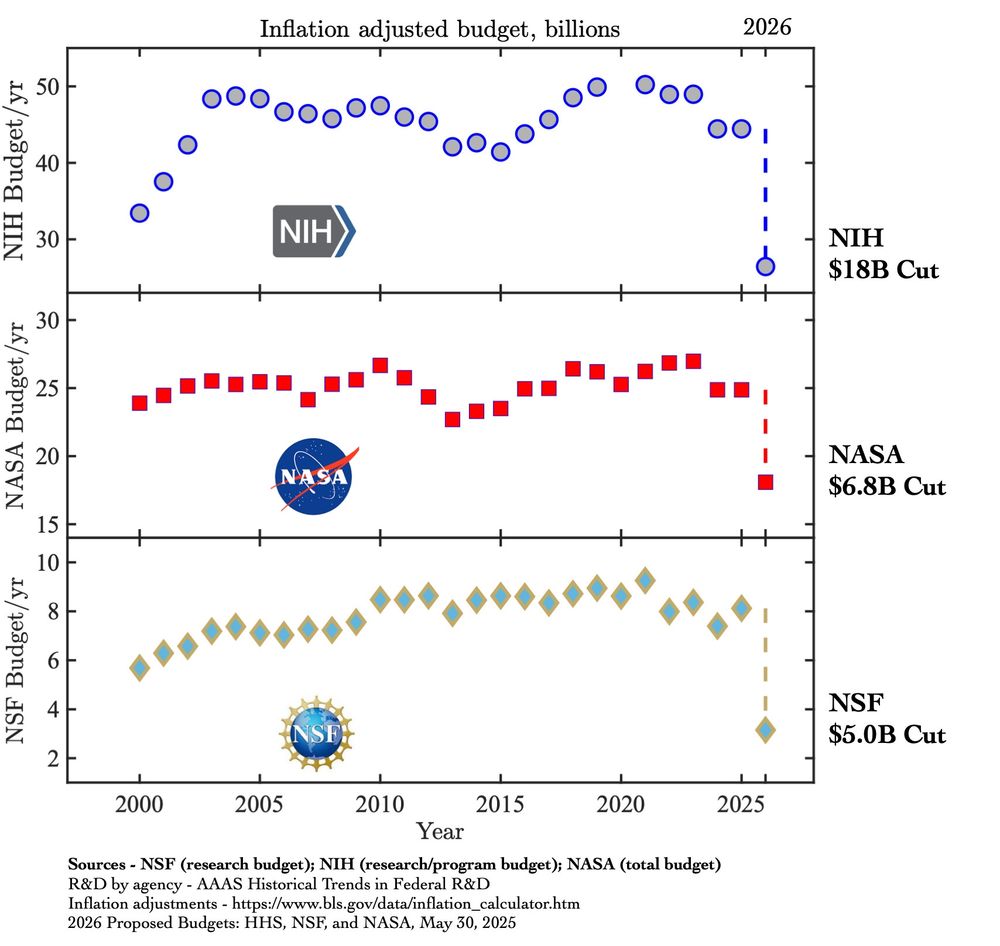
May 31, 2025 at 4:43 AM
There are 2 previous historical cases of countries destroying their science and universities, crippling them for decades: Lysenkoism in the USSR and Nazi Germany. The Trump administration will be the 3rd.
It's not just budgets but research, institutions, expertise, and training the next generation.
It's not just budgets but research, institutions, expertise, and training the next generation.
Reposted by Arnd Roth
How do we think, feel, remember, or move? 🧠 Collaborating with @unigoettingen.bsky.social , @deschutteroist.bsky.social models the vesicle cycle, a driving force behind neurotransmission, to reveal more about how our brains work.
For more details 👉 www.oist.jp/news-center/...
For more details 👉 www.oist.jp/news-center/...

Vesicle cycle model reveals inner workings of brain synapse
Advanced modeling system sheds new light on the synaptic vesicle cycle, essential in human brain function.
www.oist.jp
May 29, 2025 at 5:39 AM
How do we think, feel, remember, or move? 🧠 Collaborating with @unigoettingen.bsky.social , @deschutteroist.bsky.social models the vesicle cycle, a driving force behind neurotransmission, to reveal more about how our brains work.
For more details 👉 www.oist.jp/news-center/...
For more details 👉 www.oist.jp/news-center/...
Reposted by Arnd Roth
Does neural computation feel like something? In our new paper, we explore a paradox: if you replay all the neural activity of a brain—every spike, every synapse—does it recreate conscious experience?
🧠 doi.org/10.3389/fnin...
🧠 doi.org/10.3389/fnin...
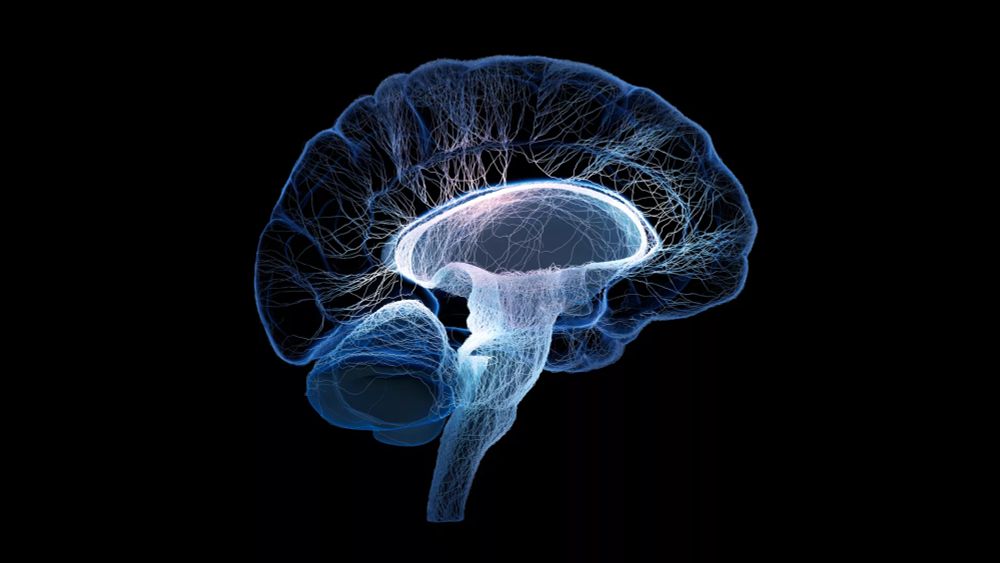
Frontiers | Does neural computation feel like something?
Artificial neural networks are becoming more advanced and human-like in detail and behavior. The notion that machines mimicking human brain computations migh...
doi.org
May 26, 2025 at 10:13 AM
Does neural computation feel like something? In our new paper, we explore a paradox: if you replay all the neural activity of a brain—every spike, every synapse—does it recreate conscious experience?
🧠 doi.org/10.3389/fnin...
🧠 doi.org/10.3389/fnin...
Reposted by Arnd Roth
Episode #28 in #TheoreticalNeurosciencePodcast: On whole-cell modeling of bacteria – with Markus Covert
theoreticalneuroscience.no/thn28
In 2020 a model of E. coli with 10000 equations and 19000 parameters was presented by the guest.
How are such models made?
theoreticalneuroscience.no/thn28
In 2020 a model of E. coli with 10000 equations and 19000 parameters was presented by the guest.
How are such models made?
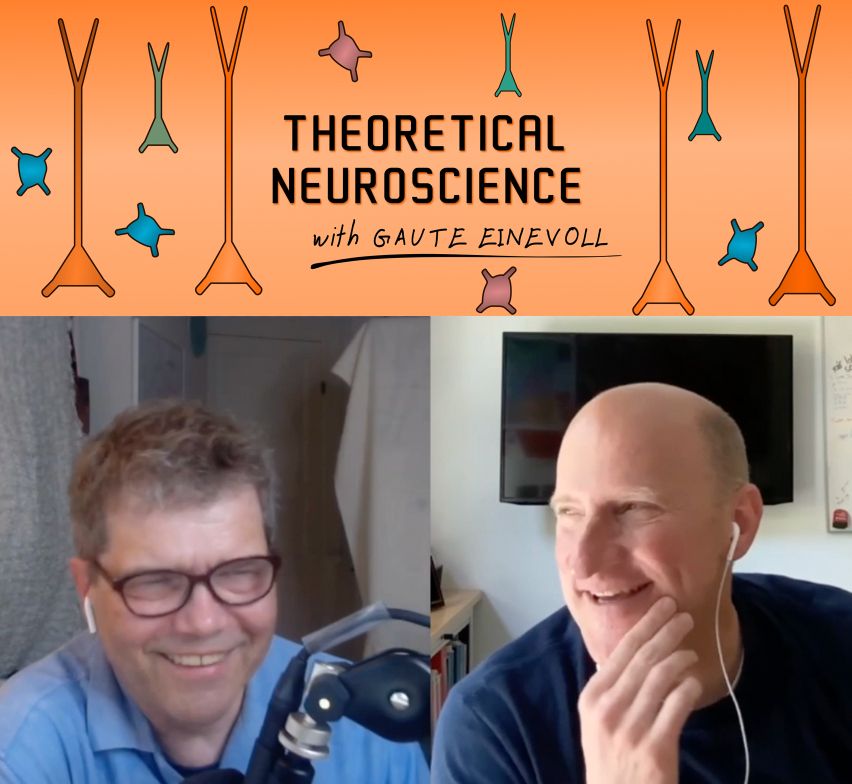
May 24, 2025 at 6:57 AM
Episode #28 in #TheoreticalNeurosciencePodcast: On whole-cell modeling of bacteria – with Markus Covert
theoreticalneuroscience.no/thn28
In 2020 a model of E. coli with 10000 equations and 19000 parameters was presented by the guest.
How are such models made?
theoreticalneuroscience.no/thn28
In 2020 a model of E. coli with 10000 equations and 19000 parameters was presented by the guest.
How are such models made?
Reposted by Arnd Roth
Delighted to join the Royal Society of London for Improving Natural Knowledge! It's been in the news since 1660, and more so lately. Grateful to all my collaborators over the years.
Congratulations to Prof Matteo Carandini @carandinilab.net @ucleye.bsky.social on his election as a Fellow of the @royalsociety.org in recognition of his invaluable contributions to scientific research in visual neuroscience #RSFellows @uclbrainscience.bsky.social www.ucl.ac.uk/news/2025/ma...
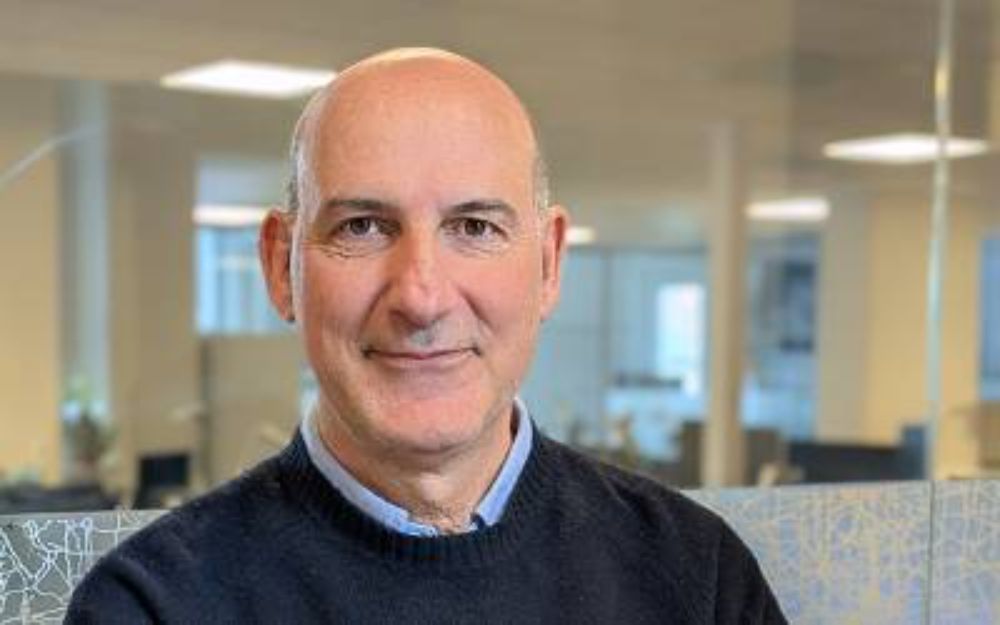
UCL visual neuroscientist elected Fellow of the Royal Society
Professor Matteo Carandini (UCL Institute of Ophthalmology) has been elected a Fellow of the Royal Society in recognition of his invaluable contributions to scientific research.
www.ucl.ac.uk
May 21, 2025 at 12:06 PM
Delighted to join the Royal Society of London for Improving Natural Knowledge! It's been in the news since 1660, and more so lately. Grateful to all my collaborators over the years.
Reposted by Arnd Roth
This is completely false. Even the largest university endowment cannot sustain a large-scale scientific research enterprise.
In my 25 years at Princeton, the most monumental fund drive for research raised a total of $325M. Federal research here costs $200M per year, every year.
In my 25 years at Princeton, the most monumental fund drive for research raised a total of $325M. Federal research here costs $200M per year, every year.
May 17, 2025 at 2:08 PM
This is completely false. Even the largest university endowment cannot sustain a large-scale scientific research enterprise.
In my 25 years at Princeton, the most monumental fund drive for research raised a total of $325M. Federal research here costs $200M per year, every year.
In my 25 years at Princeton, the most monumental fund drive for research raised a total of $325M. Federal research here costs $200M per year, every year.
Reposted by Arnd Roth
Check out our latest profile! Dr. Eve Marder studies the stability and flexibility of neural circuit function. Follow the link below to learn more!
www.storiesofwin.org/profiles/202...
#StoriesofWiN #WomenInNeuroscience #WomenInNeuro
www.storiesofwin.org/profiles/202...
#StoriesofWiN #WomenInNeuroscience #WomenInNeuro
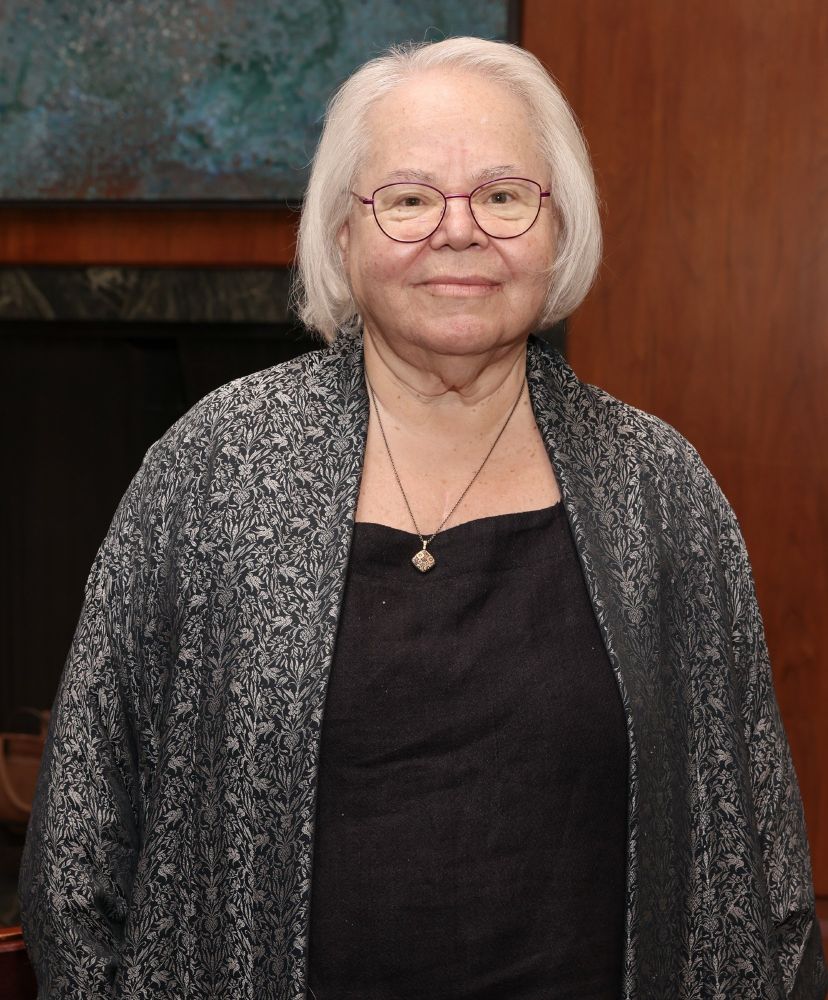
May 14, 2025 at 4:15 PM
Check out our latest profile! Dr. Eve Marder studies the stability and flexibility of neural circuit function. Follow the link below to learn more!
www.storiesofwin.org/profiles/202...
#StoriesofWiN #WomenInNeuroscience #WomenInNeuro
www.storiesofwin.org/profiles/202...
#StoriesofWiN #WomenInNeuroscience #WomenInNeuro
Reposted by Arnd Roth
"Science is an investment.
We will put forward a new 500 million package for 2025-2027 to support the best and the brightest researchers and scientists from Europe and around the world."
— President @vonderleyen.ec.europa.eu at the ‘Choose Europe for Science' event at La Sorbonne 🇫🇷
We will put forward a new 500 million package for 2025-2027 to support the best and the brightest researchers and scientists from Europe and around the world."
— President @vonderleyen.ec.europa.eu at the ‘Choose Europe for Science' event at La Sorbonne 🇫🇷
May 5, 2025 at 10:16 AM
"Science is an investment.
We will put forward a new 500 million package for 2025-2027 to support the best and the brightest researchers and scientists from Europe and around the world."
— President @vonderleyen.ec.europa.eu at the ‘Choose Europe for Science' event at La Sorbonne 🇫🇷
We will put forward a new 500 million package for 2025-2027 to support the best and the brightest researchers and scientists from Europe and around the world."
— President @vonderleyen.ec.europa.eu at the ‘Choose Europe for Science' event at La Sorbonne 🇫🇷
Reposted by Arnd Roth
#preprint:
We mapped the structure and function of olfactory bulb circuits with in vivo 2-photon microscopy and synchrotron #Xray holographic nanotomography.
doi.org/10.1101/2025...
@yuxinzhang.bsky.social @andreas-t-schaefer.bsky.social @apacureanu.bsky.social
@crick.ac.uk @esrf.fr
We mapped the structure and function of olfactory bulb circuits with in vivo 2-photon microscopy and synchrotron #Xray holographic nanotomography.
doi.org/10.1101/2025...
@yuxinzhang.bsky.social @andreas-t-schaefer.bsky.social @apacureanu.bsky.social
@crick.ac.uk @esrf.fr
May 1, 2025 at 1:39 PM
#preprint:
We mapped the structure and function of olfactory bulb circuits with in vivo 2-photon microscopy and synchrotron #Xray holographic nanotomography.
doi.org/10.1101/2025...
@yuxinzhang.bsky.social @andreas-t-schaefer.bsky.social @apacureanu.bsky.social
@crick.ac.uk @esrf.fr
We mapped the structure and function of olfactory bulb circuits with in vivo 2-photon microscopy and synchrotron #Xray holographic nanotomography.
doi.org/10.1101/2025...
@yuxinzhang.bsky.social @andreas-t-schaefer.bsky.social @apacureanu.bsky.social
@crick.ac.uk @esrf.fr
Reposted by Arnd Roth
Linking function and structure at scale with X-rays - and several times over. Massive congratulations to the team @yuxinzhang.bsky.social, @carlesbosch.bsky.social, @apacureanu.bsky.social @esrf.fr, @crick.ac.uk and all our collaborators.
My PhD project is out as a preprint!
We combined 2P and synchrotron X-ray to understand mouse olfactory bulb circuits, linking physiology to structure in 3 animals!
doi.org/10.1101/2025...
🙌 @carlesbosch.bsky.social, @apacureanu.bsky.social, @andreas-t-schaefer.bsky.social, @esrf.fr, @crick.ac.uk
We combined 2P and synchrotron X-ray to understand mouse olfactory bulb circuits, linking physiology to structure in 3 animals!
doi.org/10.1101/2025...
🙌 @carlesbosch.bsky.social, @apacureanu.bsky.social, @andreas-t-schaefer.bsky.social, @esrf.fr, @crick.ac.uk
May 1, 2025 at 12:24 PM
Linking function and structure at scale with X-rays - and several times over. Massive congratulations to the team @yuxinzhang.bsky.social, @carlesbosch.bsky.social, @apacureanu.bsky.social @esrf.fr, @crick.ac.uk and all our collaborators.
Reposted by Arnd Roth
Episode #27 in #TheoreticalNeurosciencePodcast: On construction and clinical use of multipurpose neuron models – with Etay Hay
theoreticalneuroscience.no/thn27
How are multipurpose neuron models made and used to explore differences between healthy and depressed brains?
theoreticalneuroscience.no/thn27
How are multipurpose neuron models made and used to explore differences between healthy and depressed brains?

April 26, 2025 at 7:17 AM
Episode #27 in #TheoreticalNeurosciencePodcast: On construction and clinical use of multipurpose neuron models – with Etay Hay
theoreticalneuroscience.no/thn27
How are multipurpose neuron models made and used to explore differences between healthy and depressed brains?
theoreticalneuroscience.no/thn27
How are multipurpose neuron models made and used to explore differences between healthy and depressed brains?
Reposted by Arnd Roth
Nice mood boost etched into marble at the Mellon Institute in Pittsburgh. Seen yesterday at the moving, inspiring celebration of Carl Olson's life and career.

April 26, 2025 at 2:58 PM
Nice mood boost etched into marble at the Mellon Institute in Pittsburgh. Seen yesterday at the moving, inspiring celebration of Carl Olson's life and career.


